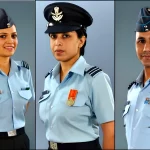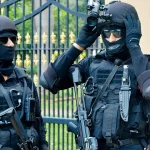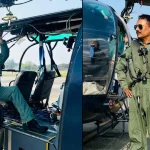Understanding the intricacies of the Services Selection Board (SSB) interview process is crucial for aspiring candidates seeking to join the Indian Armed Forces. The SSB interview is renowned for its rigorous selection criteria and comprehensive assessment of a candidate’s mental fortitude, leadership potential, and personal qualities. While many opt for formal coaching to navigate this challenging task, it is entirely possible to prepare effectively without it. In this article, we will explore ten actionable tips rooted in expert advice and practical strategies to help candidates crack the SSB interview with self-guided preparation.
Understanding the SSB Procedure Thoroughly
To effectively prepare for the SSB interview, candidates must first familiarize themselves with the selection process, which spans five intensive days. This structured approach includes several evaluations:
- Screening Tests: The first day features the Officer Intelligence Rating (OIR) test, which assesses mental aptitude, and the Picture Perception and Discussion Test (PPDT), where candidates interpret and discuss a picture presented to them.
- Psychological Tests: Candidates undergo a series of tests, including the Thematic Apperception Test (TAT), Word Association Test (WAT), and Situation Reaction Test (SRT). Each test evaluates different psychological traits, offering insight into candidates’ thought processes and emotional responses.
- Group Tasks: On subsequent days, candidates participate in various group activities that assess teamwork, leadership, and decision-making capabilities. These tasks may include obstacle courses, group discussions, and individualized problem-solving scenarios.
- Personal Interviews: Conducted by assessors, the personal interview probes deeper into a candidate’s personal history, motivations, and reasons for joining the Defence forces.
- Physical Fitness Assessments: Physical endurance and fitness play a key role in the selection process, characterized by obstacle races and other physical challenges to evaluate strength and stamina.
Understanding these components allows candidates to tailor their preparation effectively and increases their confidence throughout the process. Candidates should develop a checklist that covers each aspect, ensuring they allocate time and effort towards every significant area of the interview.
Create a Structured Daily Routine
Establishing a structured daily routine is essential for building discipline and maximizing productivity. Candidates should craft a balanced schedule that includes:
- Physical Fitness: Allocate time each day for physical training, focusing on endurance, strength, and flexibility. This effort not only prepares candidates for the physical tests of the SSB but also fosters overall health and well-being.
- Current Affairs Study: Dedicate time to reading newspapers and following reliable news sources. Keeping abreast of national and international developments helps candidates engage meaningfully during discussions and interviews.
- Psychological Test Practice: Regularly practice TAT, WAT, SRT, and PPDT individually or in peer groups. This reinforces instinctive and positive thinking skills, essential for success in psychological evaluations.
- Personal Reflection and Relaxation: Allocate moments for self-reflection to introspect on strengths and weaknesses, which aids in fostering authenticity during interviews.
Research indicates that candidates adhering to a structured approach witness a 25% higher success rate. This disciplined routine not only enhances preparation but also instills the Officer-Like Qualities (OLQs) sought after by selectors.
Physical Fitness and Stamina
The emphasis on physical fitness in the SSB interview cannot be overstated. Engaging in regular physical exercise is crucial as it serves multiple purposes:
- Confidence Building: Physical fitness boosts self-esteem and presents candidates more favorably in group tasks and interviews. A confident appearance is often correlated with positive selection outcomes.
- Endurance for Physical Tasks: Many candidates find themselves challenged by the physical tasks during the interview. Engaging in agility exercises, strength training (e.g., push-ups, squats), and cardiovascular workouts (e.g., running, swimming) enhances stamina and performance in obstacle races.
- Stress Relief: Regular physical exertion promotes mental clarity and stress reduction, allowing candidates to approach the interview process with a calm, composed demeanor.
A well-rounded fitness regime should encompass aerobic exercises for endurance, strength training for muscle resilience, and even flexibility workouts such as yoga to promote agility and calmness.
Improve Communication Skills
Effective communication is a cornerstone of successful candidates in the SSB interview. Candidates can enhance their communication skills by:
- Daily Speaking Practice: Actively engage in conversations, practice speaking out loud, or even rehearse in front of a mirror. This exercise builds fluency and articulation, essential for group discussions and personal interviews.
- Mock Group Discussions: Simulate group discussions with peers to experience the dynamics of valuing diverse opinions and articulating thoughts effectively. Engage in topics of current interest to develop a broader base of knowledge.
- Listening Skills: Effective communication is not just about speaking well; it is equally about listening. Developing attentive listening skills cultivates empathy and allows for thoughtful responses.
Statistics indicate that effective communicators tend to leave a favorable impact on assessors, enabling candidates to build rapport. The ability to present well-thought-out ideas clearly and effectively is a strong selection criterion.
Stay Updated with Current Affairs
Current affairs play a pivotal role in both the group discussions and personal interviews. Candidates should dedicate time each day to stay informed by:
- Reading Newspapers: Regularly read reputable national and international newspapers such as The Hindu, Times of India, or The Indian Express. Service members will also find value in various Defence magazines and journals.
- News Channels: Tune into credible news channels or their online platforms to gain insights on political, economic, and social developments.
- Online Resources: Explore reputable online news websites and apps, which can provide instant updates and analysis.
A well-informed candidate is better equipped to participate meaningfully in discussions and answer questions during interviews. Candidates who can discuss current events often demonstrate awareness and an analytical approach, which is highly regarded by selectors.
Practice Psychological Tests Diligently
Familiarity with various psychological tests is critical for candidates:
- Thematic Apperception Test (TAT): In this narrative-based test, candidates must create stories based on ambiguous images. Regular practice improves storytelling skills and creativity.
- Word Association Test (WAT): Candidates respond to a series of words by writing the first thing that comes to mind. Regular practice can enhance quick thinking and the ability to express personal attitudes and feelings.
- Situation Reaction Test (SRT): Candidates react to hypothetical situations presented in scenarios. Practicing these tests helps build instinctive responses that reflect leadership qualities.
Consistent practice sharpens critical thinking and improvisation skills, and candidates with a track record of extensive practice tend to score significantly higher in this domain. Mock tests with real-life scenarios can also significantly bolster confidence.
Build Self-Awareness and Introspection
The value of self-awareness in the SSB interview cannot be overstressed. Assessment panels seek authenticity and those exhibiting genuine personas. Building self-awareness involves:
- Regular Reflection: Reflect on personal experiences and identify strengths and weaknesses openly. Recognizing areas for improvement fosters growth and development.
- Seeking Feedback: Ask trusted friends or family members for honest feedback on personal qualities and areas for development. Constructive criticism can provide a fresh perspective that aids in self-improvement.
- Developing a Personal Brand: Understand how you wish to project yourself to others. What qualities do you want them to associate with you? Developing a clear vision of your personal brand will influence your responses and demeanor during the selection process.
Authenticity, composure under stress, and preparedness are highly valued by selectors and often differentiate successful candidates during the assessment.
Time-Management Skills
Good time management during preparation, as well as during the interview, can change the game for candidates:
- Organized Preparation Schedule: Divide study and practice time effectively among various domains, including physical training, psychological tests, and self-reflection.
- Time-Calibrated Preparation: Break larger tasks into smaller, manageable goals to ensure deadlines are met without undue stress.
- Performance Under Pressure: During the interview, time management helps candidates answer all questions without feeling rushed or overwhelmed. Practicing mock interviews within set time limits can enhance one’s performance.
Effective time management mitigates stress and fosters a productive environment conducive to thoughtful preparation and performance during the SSB.
Utilize Reliable Resources
Candidates should seek reliable resources to guide their self-study efforts. Valuable materials may include:
- SSB Blogs and Websites: Follow trusted platforms like SSBCrack and SSBCrackExams for expert tips, experiences, interview strategies, and relevant preparation materials.
- Books on SSB Preparation: Invest in well-reviewed books that cover the OIR and PPDT exams comprehensively.
- Online Forums: Join online forums or study groups that simulate the testing environment, allowing candidates to share insights and experiences with one another.
Organize Your Documents and Planning
Preparation goes beyond mental readiness; being organized is equally essential as candidates prepare for the interview:
- Create a Checklist: Compile a list of all essential documents required, including call letters, identity proofs, and medical certificates.
- Document Backup: Ensure multiple copies are made of key documents. Check that all documents meet the specific requirements outlined in the interview guidelines.
- Follow Instructions Accurately: Scrutinize the guidelines issued for document submission and interview procedures, ensuring complete compliance to avoid last-minute hassles.
An organized approach not only eases stress on the interview day but also marks the candidate as diligent and prepared in the eyes of the assessors.
Conclusion
In conclusion, cracking the SSB interview without formal coaching is achievable with self-discipline, structured preparation, and a keen understanding of the selection process. By implementing the ten tips discussed, candidates can elevate their chances of success independently. From improving communication skills to rigorous physical training, each facet serves to consolidate a candidate’s profile as a courageous and equipped individual aspiring to serve in the Indian Armed Forces.
The journey to success requires diligence, commitment, and adaptability. Candidates should take initiative, harness their potential, and approach the selection process with unwavering confidence. With dedicated self-preparation and a clear focus, excelling in the SSB interview and joining the Defence services can remain a rewarding aspiration within reach.













